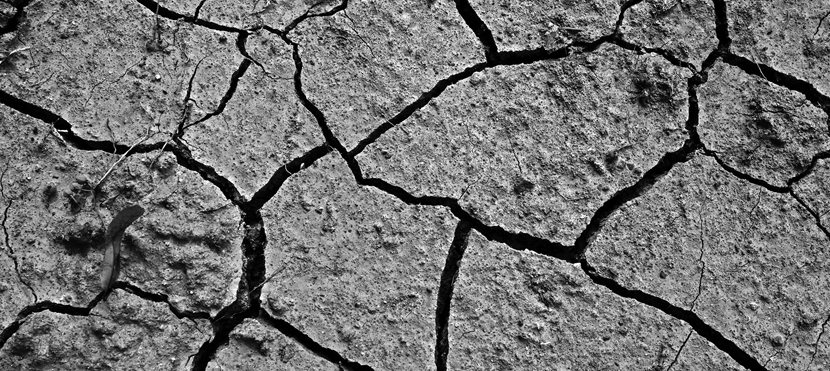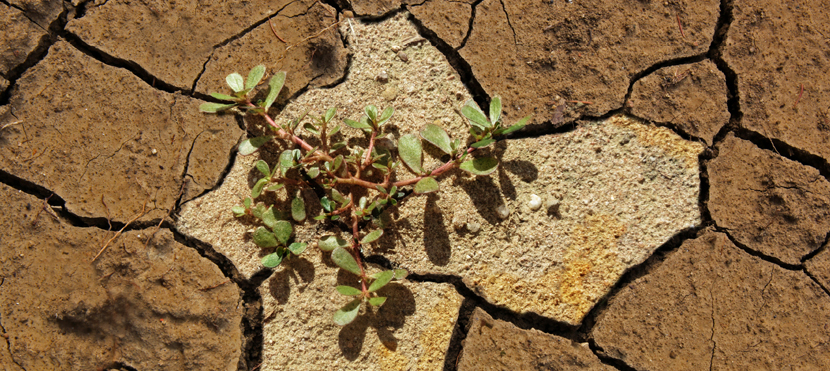In light of the COVID-19 pandemic, the Global Symposium on Salt-affected Soils (GSAS21) “Halt soil salinization, boost soil productivity” will be held in a virtual format from 20 to 22 October 2021.
This science-policy meeting is organized by the Food and Agriculture Organization of the United Nations, its Global Soil Partnership (GSP), the Intergovernmental Technical Panel on Soils (ITPS), together with the Science Policy Interface of United Nations Convention to Combat Desertification (SPI-UNCCD), the Government of the Republic of Uzbekistan, the International Union of Soil Sciences (IUSS), the International Center on Biosaline Agriculture (ICBA), the International Network of Salt-Affected Soils (INSAS), and the Global Framework on Water Scarcity in Agriculture (WASAG).
There are naturally saline or sodic soils, which harbor valuable ecosystems, and include a range of plants that are adapted to extreme conditions. However, secondary salinity and sodicity can develop or increase rapidly in response to unsustainable human activities, posing a threat to agricultural production, food security, the provision of essential ecosystem services as well as the achievement of the Sustainable Development Goals (SDGs). Salinization and sodification of soils are among the most serious global threats to arid and semi-arid regions but also for croplands in coastal regions and in case of irrigation with wastewater in any climate.
The main objectives of the Symposium are to share knowledge on salinity prevention, management, and adaptation and to establish critical connections between science, practice, and policy by facilitating discussion among policy makers, food producers, scientists, and practitioners for sustainable management of salt-affected soils.
In the framework of the Global Symposium on Salt-Affected Soils (GSAS21), FAO and its Global Soil Partnership (GSP) is launching a
Video Contest on Salt-Affected Soils. The purpose is to offer to participants the opportunity to share the successful practices and technologies aimed at rehabilitation and sustainable management of saline and sodic soils.
ABOUT THE CONTEST
The videos should illustrate the following elements:
- Explain briefly the main principles of practice or technology;
- Explain how the practice or technology helps to decrease the negative impact of soil salinity and sodicity;
- Show the overall positive impact of practice or technology on soil health and soil productivity;
- Show the environmental, economic and social context of this practice or technology.
RULES FOR PARTICIPATION
- Each participant can submit up to five entries by filling this Registration form. For any issues to access the google form, please download and fill this form and send it by email to GSAS21@fao.org
- If the entry exceeds the maximum allowed size, contestants are invited to use WeTransfer, Google Drive, Dropbox or any other free file transfer services.
- Contestants must own the copyright and must have taken the photographs themselves. They may have been taken at any time prior to the contest launch.
- Participants are welcome to post their photos on their social media accounts, using the hashtag #SoilSalinization #GSAS21.
In the framework of the
Global Symposium on Salt-Affected Soils (GSAS21), FAO and its Global Soil Partnership (GSP) is also launching a
Photo Contest on Salt-Affected Soils. Its purpose is to offer participants the opportunity to share their testimonies on the effects of soil salinity and sodification while raising awareness about the dangers posed by these soil threats.
ABOUT THE CONTEST
The photos should focus on at least one of the below elements:
- Provide examples of the key drivers of soil salinization and sodification;
- Showcase the on-site and off-site impacts of salinization and sodification;
RULES FOR PARTICIPATION
- Each participant can submit up to five entries by filling this Registration form. For any issues to access the google form, please download and fill this form and send it by email to GSAS21@fao.org
- If your entry exceeds the maximum allowed size, contestants are invited to use WeTransfer, Google Drive, Dropbox or any other free file transfer services.
- Entrants must own the copyright and must have taken the photographs themselves. They may have been taken at any time prior to the contest launch.
Participants are welcome to post their photos on their social media accounts, using the hashtag #SoilSalinization #GSAS21.



Leave a Reply